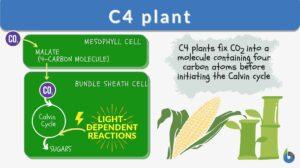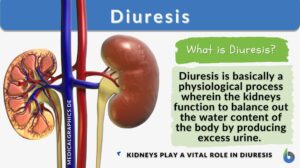Search Results for: temperature
Molecular Basis of Temperature-Dependent Gender of Red-Eared Slider Turtle
Imagine a child inside a womb with a sex yet to be decided not by the pair of sex chromosomes but by the ambient temperature... Read More
Temperature Regulation in Animals
Control of Temperature in Homeotherms Animals capable of temperature regulation within a given range are deemed homeotherms... Read More
Thermophile
Thermophiles Definition What are thermophiles? Let us first understand the literal meaning of the word ‘thermophile’.... Read More
Melting temperature of dna
melting temperature of DNA --> denaturation temperature of DNA That temperature at which, under a given set of... Read More
Homeostasis
Homeostasis is the tendency not to stray from the range of favorable or ideal internal conditions. Such conditions must be... Read More
Regulation of Organic Metabolism, Growth and Energy Balance
Organic Metabolism Events of Absorptive and Post-absorptive States. The absorptive state is the period during which... Read More
Room temperature
room temperature The ordinary temperature (65? to slightly less than 80?F, 18.3? to 26.7? C) of the atmosphere in the... Read More
Temperature
Temperature (Science: chemistry) temperature is proportional to the average random kinetic energy of ideal gases. The degree... Read More
Abiotic factor
An abiotic factor is a non-living element of the environment that influences the way organisms and ecosystems function. Some... Read More
Temperature Regulation
The ability of an organism to regulate its internal temperature to a particular level, such as the 37n degree celsius... Read More
Minimum temperature
minimum temperature In bacteriology, denoting a temperature below which growth will not take... Read More
Maximum temperature
maximum temperature In bacteriology, denoting a temperature above which growth will not take... Read More
Environment
Environment Definition What does environment mean? If you mean physical environment, then it is defined as the surrounding... Read More
Freshwater Communities & Lentic Waters
Lentic (still water) communities can vary greatly in appearance, anything from a small temporary puddle to a large lake is... Read More
An introduction to Homeostasis
Researched and Written by Jonjo MinnsSubmitted to biologyonline.com on February 25, 2009.Published in biologyonline.com... Read More
Heating curve
Definition noun A plot of temperature versus time, showing the amount of energy a substance has absorbed with increasing... Read More
Integumentary system
Integumentary System Definition The integumentary system is the outermost layer of the body. The animal body, in... Read More
Equilibrium
Equilibrium Definition In Biology Equilibrium refers to the state of balance and stability. In biology, equilibrium is... Read More
Feedback mechanism
Feedback Mechanism Definition What is a feedback mechanism? A feedback mechanism is a physiological regulation system in a... Read More
Plant Metabolism
Introduction Plants are responsible for incredible feats of molecular transformation. The processes are always being... Read More
Photosynthesis
Photosynthesis is a physio-chemical process carried out by photo-auto-lithotrophs by converting light energy into chemical... Read More
Psychrophile
Definition noun, plural: psychrophiles An organism that thrives in cold temperatures, i.e. ranging from −20 °C to +10... Read More
Abiotic and Biotic Factors
Abiotic factors are essentially non-living components that affect the living organisms of the freshwater community.When... Read More
Hyperthermia
Definition noun A condition in which the body temperature is higher than the normal range Supplement Hyperthermia pertains... Read More
Thermometer
thermometer (Science: physics) An instrument for measuring temperature, founded on the principle that changes of temperature... Read More
Diaphoresis
What is Diaphoresis? Diaphoresis is referred to excessive or profuse perspiration or sweating which may be due to... Read More
Chronobiology
Chronobiology Definition Chronobiology is a branch of biology that studies time-related phenomena (e.g., biological... Read More
Hyperpyrexia
Definition noun An extremely high fever that is greater than or equal to 41°C (105.8°F) Supplement Hyperpyrexia is a fever... Read More
Infradian rhythm
What is the Infradian Rhythm? An infradian rhythm is a type of biological rhythm that lasts longer than 24 hours, with a... Read More
Abiotic Factors – Water Conditions
Evidently, the light and heat from the sun play an important role in providing suitable conditions. However, the water... Read More
Environmental resistance
Environmental Resistance Definition Environmental resistance is such a process in which certain different elements or... Read More
Positive feedback
Positive Feedback Definition Each mechanism of the body like temperature, blood pressure, and levels of specific nutrients... Read More


























